8 Adaptive Reuse Collision Centers In 8 Different Property Types
Former grocery stores, warehouses, strip malls, factories and even a vacant movie theater have been repurposed as collision centers; could drugstore and restaurant conversions be next?
There are over 40,000 collision repair shops in the U.S.
While many of these collision centers have been around for years—even decades—some shops have opened new locations in recent years.
Or have relocated existing centers into different real estate.
This has occurred as the largest industry consolidators and multi-shop operators (MSOs) carve out a bigger share of the collision repair industry.
The top 5 industry consolidators—Caliber Collision, Gerber Collision & Glass, Crash Champions, Classic Collision and Joe Hudson’s—together now operate over 4,000 body shops and generate more than 30% of repair industry revenue.
As the collision repair industry consolidates, there has been a greater focus on collision center real estate.
New and relocated collision centers are often larger, in better locations and include more features and services.
While some of these centers have been constructed new from the ground up, many have been developed via the adaptive reuse of existing buildings.
Including in a wide variety of real estate.
Like the 8 collision center repurposes highlighted below—in 8 different property types.
A Former Grocery Store
In 2023 ALDI vacated its 14,000 square foot freestanding grocery store in Bethlehem, PA and relocated to a larger space in a nearby shopping center.
The freestanding former ALDI building did not remain vacant for long—but its new user is not another grocer or retailer.
Instead it was repurposed for auto body and glass repair by Caliber Collision.
A Former Car Dealership
Former automotive real estate is often easier to repurpose as collision centers than other property types.
After all, these buildings are already zoned for auto-related uses and often include service bays and other features that are useful to body shops.
So it is no surprise that several vacant former auto dealerships have been converted into collision centers.
Like Caliber’s repurpose of this former Saturn dealership in Tennessee.
A Former Warehouse
The ~70,000 square foot Crash Champions collision center in Milpitas, CA has an upscale design with first class amenities including a grand glass entrance and a contemporary customer waiting area with interior water features.
It also offers covered customer parking and an on-site Enterprise car rental service.
What may not be immediately clear though is that this large collision center is a repurpose of a vacant warehouse.
The converted warehouse building is one of the largest collision centers in the area with the capacity to repair over 350 vehicles per month.
An Anchor To A Retail Strip Mall
Collision center adaptive reuse projects have not been limited to standalone properties.
In fact some repurposed collision centers have been designed to complement nearby uses.
Like as an anchor to an adjacent shopping center.
Caliber Collision has located several collision centers in large parts of shopping centers.
For instance, Caliber took over a former tile shop and mattress outlet at the Ellisville Shops in Ellisville, MO.
It now serves as a new “anchor” of the 38,000 square foot suburban shopping center.
And one of Caliber’s newest locations is slated to open later this year in a former Big Lots store that anchored a small shopping center in Tucson, AZ.
Caliber Collision is not only occupying the former ~22,000 square foot Big Lots anchor suite but also ~5,000 square feet of vacant small shop space.
Once it opens it will share the center with a single remaining co-tenant—one of the seven Lucky Wishbone restaurants that dot the Tucson market.
A Former Lowe’s Big Box Hardware Store
Truckworx, a commercial truck dealer in Alabama, expanded and relocated one of its body shops into a 100,000 square foot former Lowe’s Home Improvement store in Graysville, AL.
The converted Big Box retail site offers a full suite of collision repair, refurbishment and glass replacement services for trucks, buses, van bodies, trailers, emergency and construction equipment.
It even includes three high tech paint booths that provide complete spot or area painting for trucks.
A Former Paper and Packaging Plant
Brandon Ford of Tampa, FL is one of the largest volume new Ford dealers in the world.
So it is fitting that its affiliate, Brandon Collision, operates one of the largest collision repair centers in North America.
Located just 1/2 mile west of the Ford dealership, Brandon Collision operates in a 150,000 square foot building that was formerly the Temple Inland paper board and packaging plant.
A Former Theater
The Terrace Theater in Livonia, MI opened in 1962.
The theater was designed in a “Chinese Garden” style with a 52 foot long canopy marquee and featured one of the largest screens in the Metro Detroit area at the time of its opening.
The Terrace remained opened until 1999.
In 2002 Bill Brown Ford, the highest volume Ford dealer in the U.S. for past 4 years, acquired the old movie theater to repurpose it as a collision center.
Bill Brown Collision repairs ~300 cars per month at the former theater.
A Former Cannabis shop
JARS Cannabis in Mt. Pleasant, MI relocated its cannabis shop to a the site of a closed restaurant and brew pub on the City’s main retail corridor.
But the real estate that JARS vacated did not stay vacant for long.
Caliber Collision repurposed the ~16,000 square foot former cannabis shop into a collision center.
Potential adaptive reuses of other property types as collision centers may also be in the works.
For instance, Gerber Collision had planned to convert a former CVS in Darien, IL into a collision center.
The Darien City Council approved a special use permit to convert the site but litigation and environmental concerns caused Gerber to drop the adaptive reuse project.
Still with the significant supply of former drugstore real estate on the market, other drugstore-to-collision center conversions may be in the works.
The significant number of restaurant closures in recent years has also freed up real estate for adaptive reuse.
One such example is the closing of Chakra, an American restaurant on busy Route 17 in Paramus, New Jersey that had operated for nearly two decades.
However Chakra’s proprietor—who also owned the property—believed that a restaurant was not the highest and best use of the real estate.
So he closed the restaurant and put the building up for sale.
It was acquired by Branning Collision Centers, a family owned, New Jersey-based MSO with plans to convert the former restaurant into a collision center.


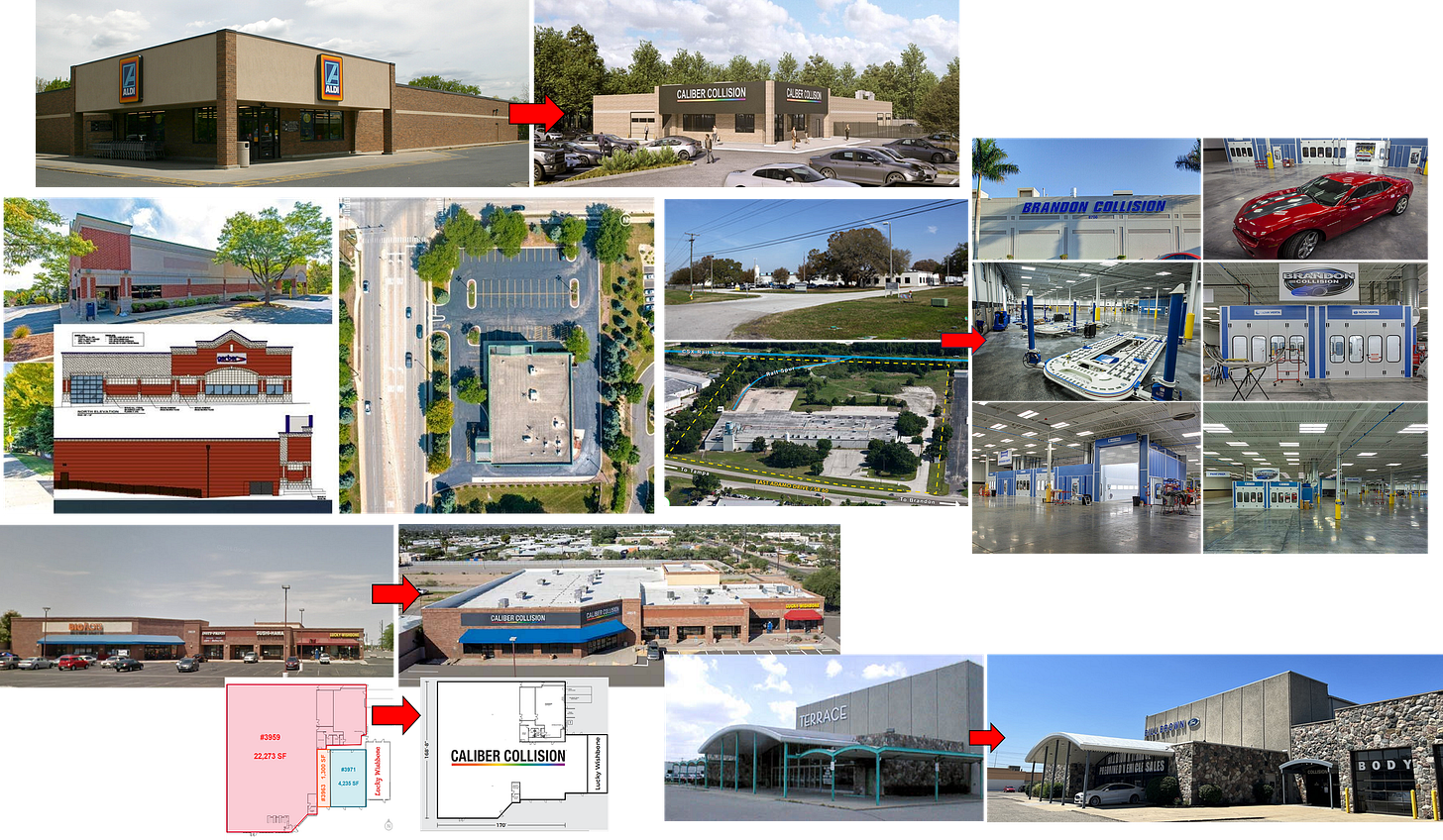

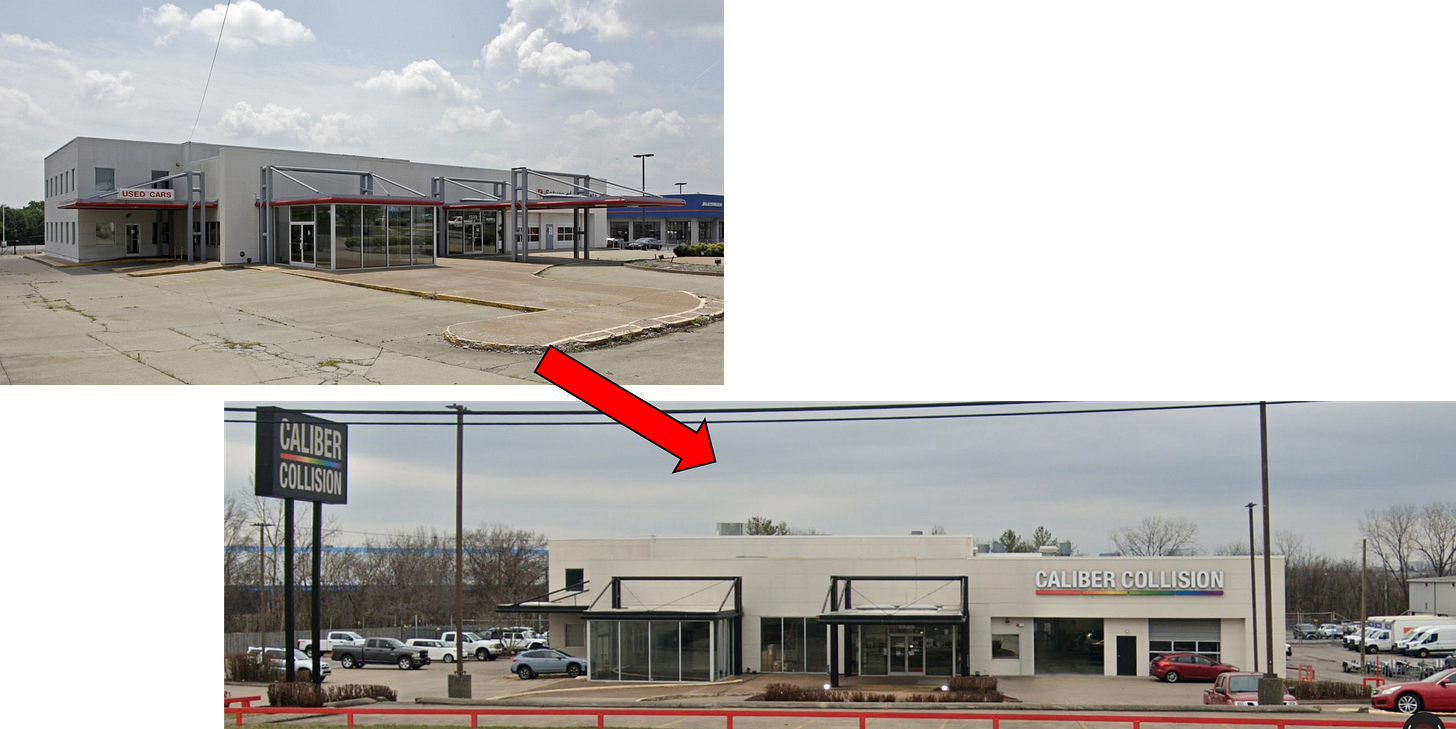
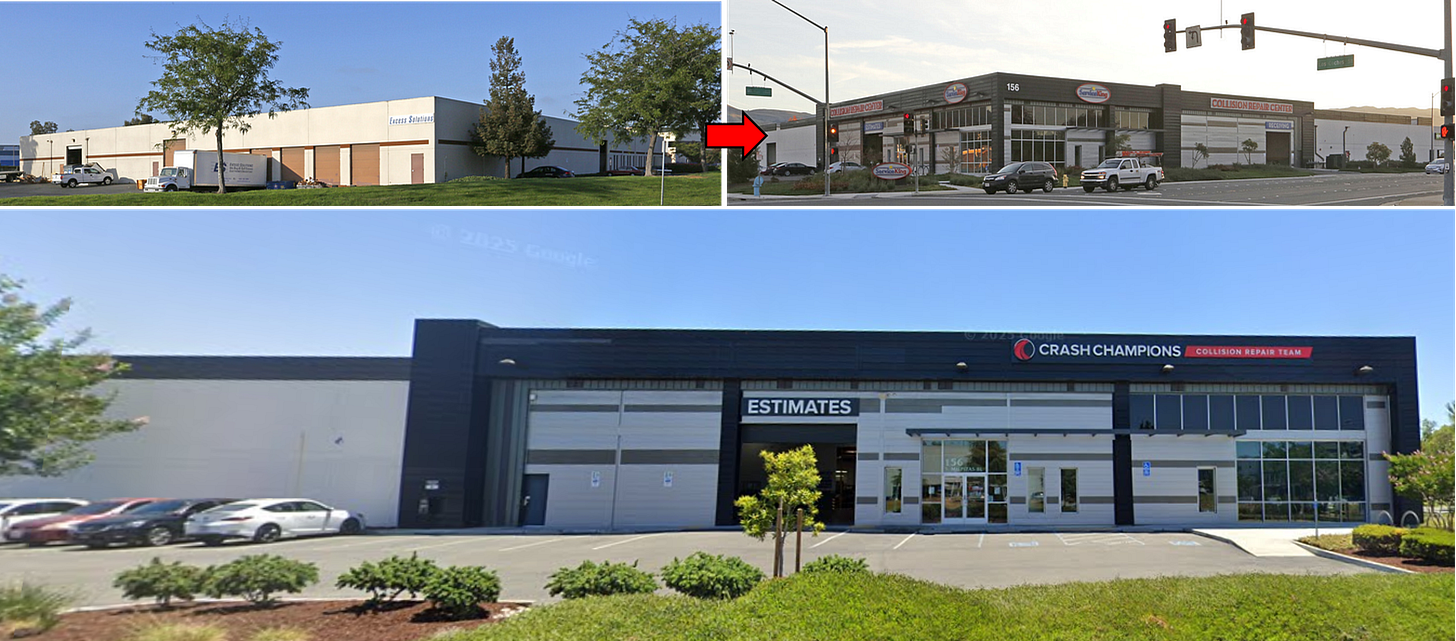

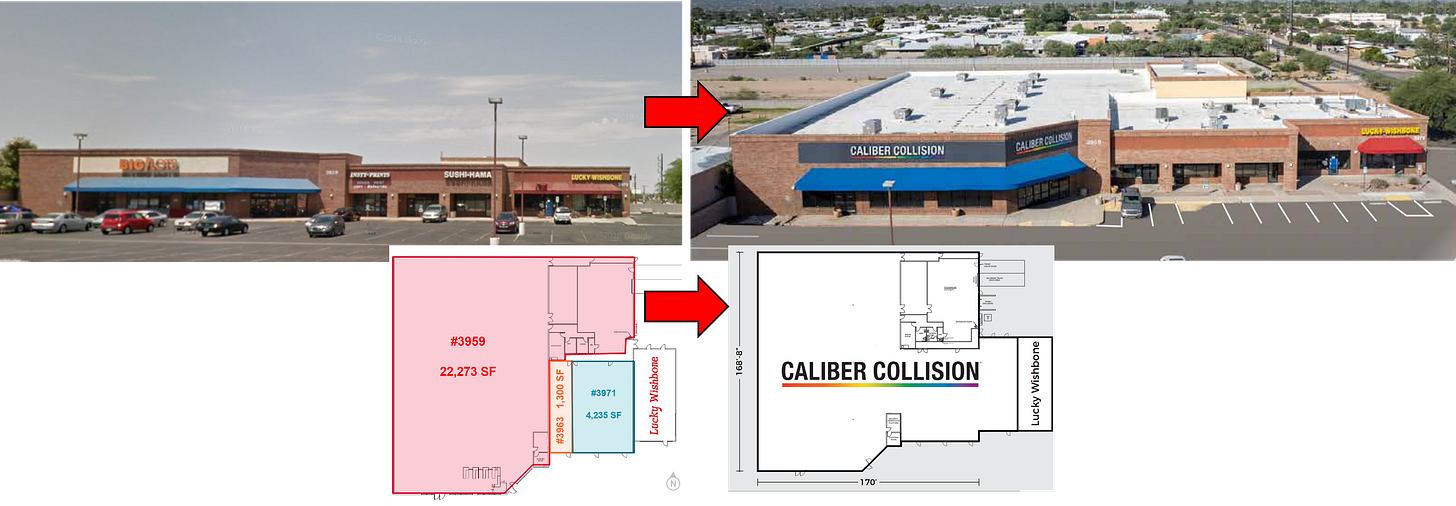



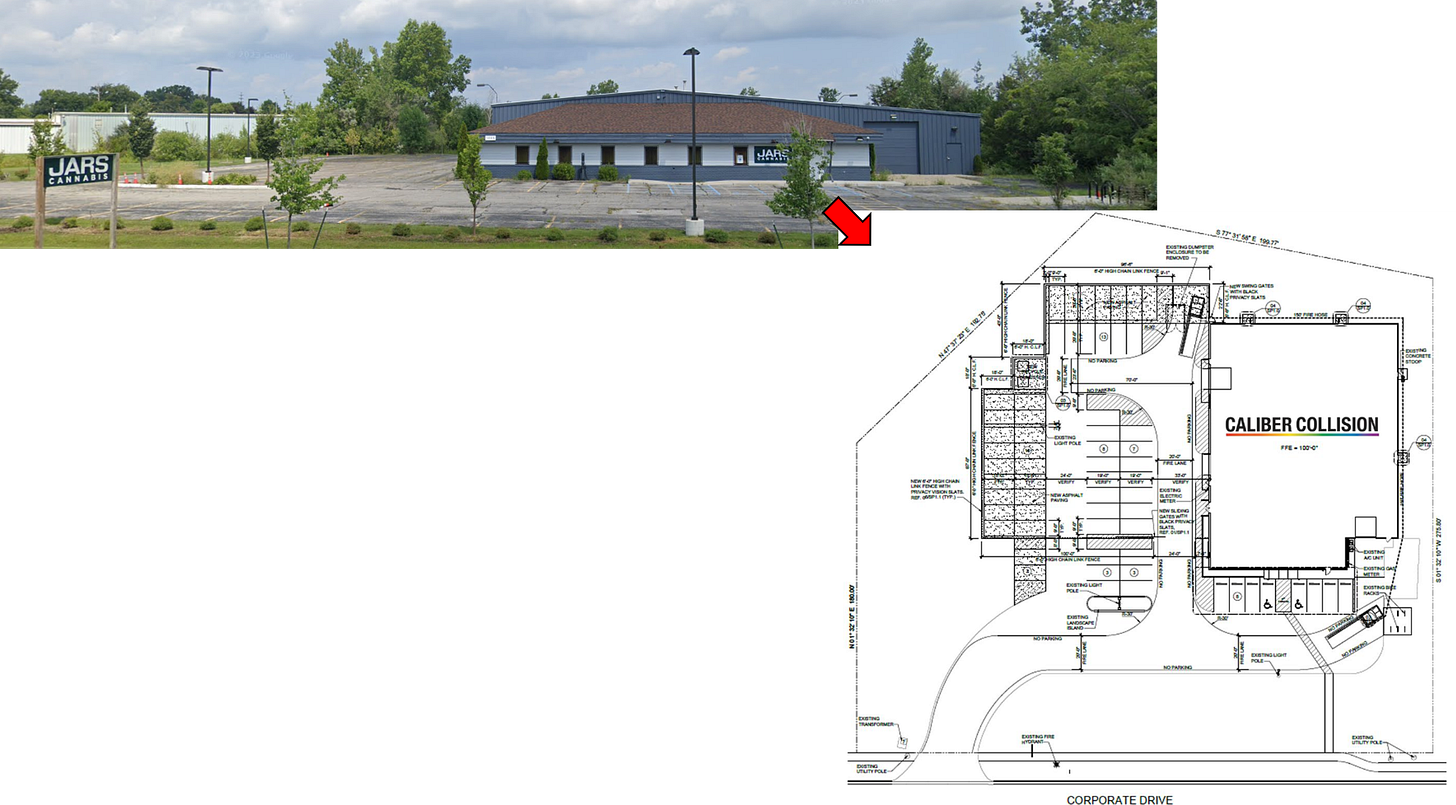
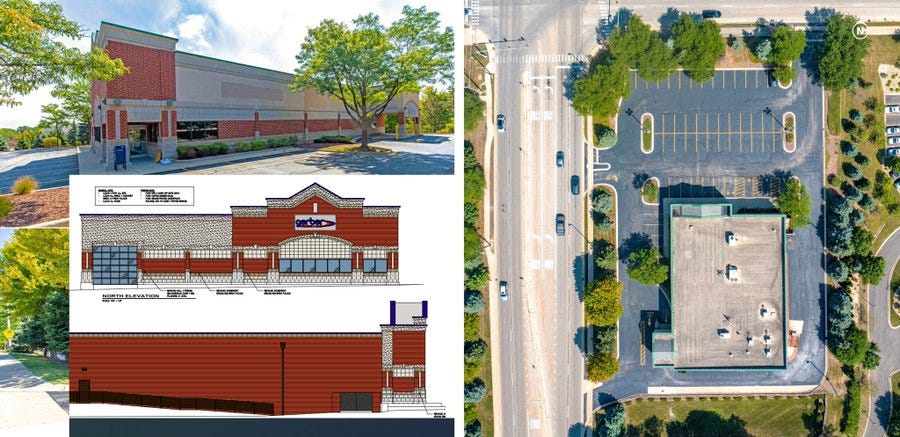

Great article. You shd see if one of the trades wants to reprint a version of this. Tho MSO commonly means, or perhaps has come to mean multi-shop operators — an owner with several sites in a single state is also called / counted as an MSO.
Nice job; informative read.
Paul Hughes
Ps / As [I believe ] in other industries, collusion repair calls these ‘brownfields’ — https://www.autobodynews.com/news/collision-center-operators-expand-by-new-build-to-suit-locations